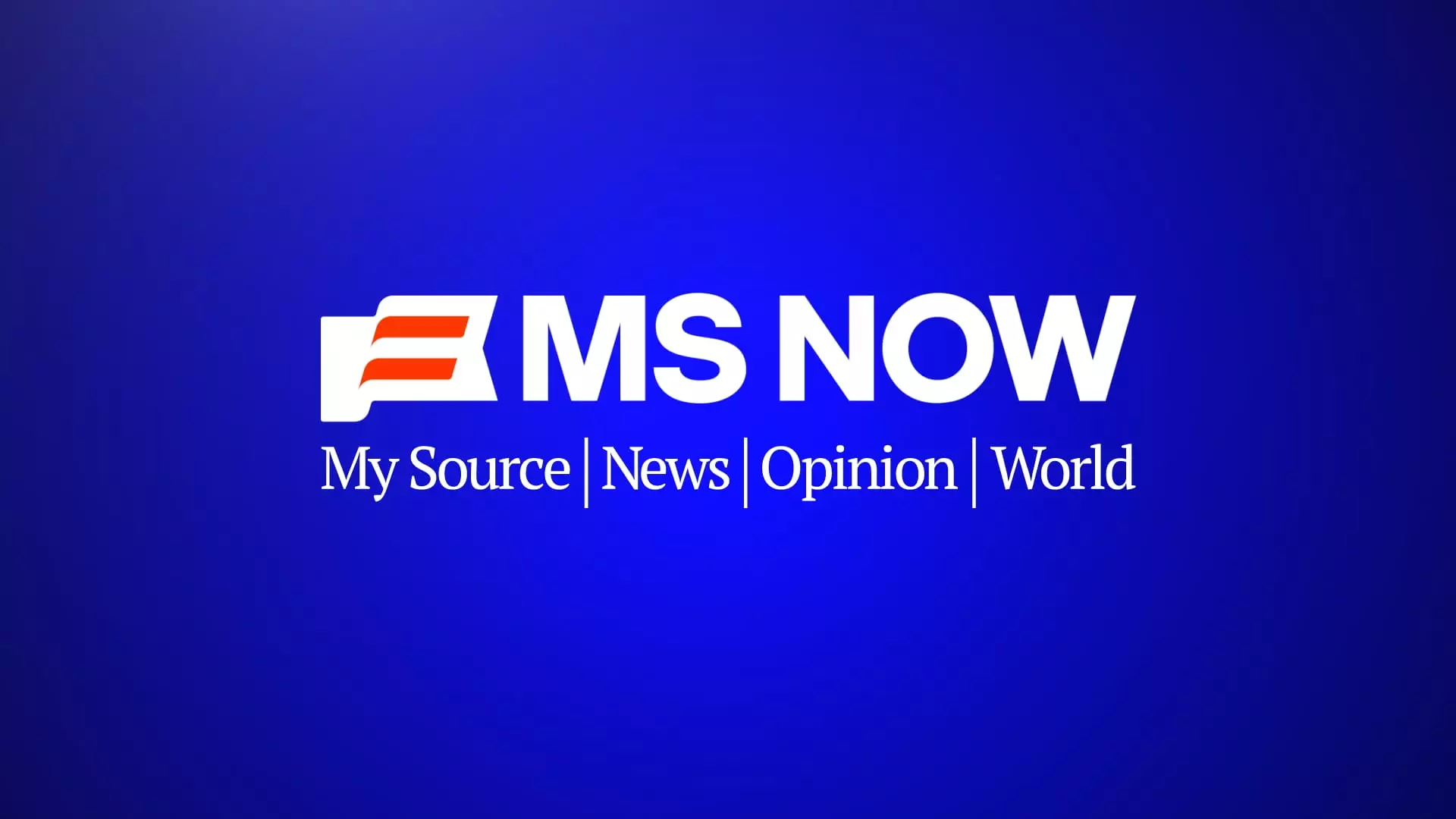MSNBC’s impending rebranding marks more than just a superficial logo change; it provides a stark reflection of the intricate power plays within the corporate media landscape. Under the guise of “clarifying brand distinction,” the decision to sever MSNBC’s ties from NBCUniversal’s umbrella signifies a strategic push to craft a more autonomous identity. But beneath this veneer of independence lies a complex agenda—one aligned with broader corporate interests rather than pure journalistic integrity. The move reveals more about corporate restructuring and market positioning than it does about journalistic innovation. In essence, the rebranding is a calculated maneuver designed to reposition MSNBC as a more distinctly marketable entity, teetering on the boundary between news and opinion, all under the guise of independence.
The Motive of Rebranding: A Costly Exercise in Image Management
While executives emphasize that the core mission and journalistic values will remain unchanged, this declaration rings hollow in the context of such a drastic rebrand. Historically, MSNBC has been a major player on cable news, with a reputation often scrutinized for blending advocacy with reportage. The decision to change its name from a brand synonymous with a legacy of partisan opinion to a more neutral-sounding “My Source News Opinion World” or “MS Now,” reflects an underlying desire to appeal more broadly — possibly even to skeptical viewers wary of perceived bias. Corporate branding strategies frequently hinge upon such rebranding efforts, not necessarily to improve content quality, but to refine public perception and expand market share. However, in a media environment increasingly polarized, this shift risks further muddying the waters between credible journalism and opinion-driven content, leaving viewers confused about what to trust.
Strategic Disconnection: A Response to Market Complexity
The departure from NBC News is not an isolated event but rather a part of a larger trend in media—namely the drive to establish segmented, almost franchised brands that can operate with more discretion and profitability. By cultivating an independent MSNBC, Versant appears to be positioning it as a sidecar entity optimized for a different demographic, perhaps one seeking less corporate-flavored news and more personalized opinion. This is further supported by the extensive hiring drive—bringing in journalists from diverse outlets like CNN and Bloomberg signifies an attempt to refresh its newsroom and redefine its narrative stance. Yet, this approach raises questions about journalistic consistency: Will this independence dilute the sanctity of factual news, turning MSNBC into an opinion hub, an echo chamber for center-right liberalism? Or does it signal an opportunity for the network to provide a more balanced, nuanced alternative in a media landscape saturated with extremes?
Less Branding, More Strategic Influence
The move to overhaul logos and branding across Versant’s portfolio, removing the iconic peacock, signals more than rebranding; it signals a recalibration of influence. The peacock, a symbol of NBCUniversal’s media empire, has long been associated with mainstream, often ideologically neutral, entertainment and news. Its removal across various brands suggests an effort to shed a corporate, perhaps too corporate, image that might be perceived as out of touch or compromised. Instead, these brands are adopting sleeker, less identifying logos hinting at modernity and independence. This is a calculated branding tactic, designed to project strength and self-reliance—traits essential in a media climate where trust is fragile and perception is everything. The new branding aims to craft a narrative of strength, control, and independence—whether this perception aligns with reality remains questionable.
The Political Implications: Center-Right Liberalism on the Rise?
From a political perspective aligned with center-right liberalism, this rebranding suggests a subtle but strategic positioning. MSNBC’s history of leaning towards liberal commentary has often been criticized by conservatives and centrists alike. The attempt to carve out a distinct identity could be interpreted as a response to this criticism—aiming to appeal to a broader, more moderate audience that values independence and less overt partisanship. It could also be a defensive move, recognizing that polarized content alienates potential viewers who prefer nuanced, centrist narratives. By emphasizing “independence,” the network subtly distances itself from overt ideological leanings, possibly aiming to appeal to an audience that feels alienated from the extremes of both left and right. This pivot might represent an attempt to balance ideological integrity with pragmatic market strategy, ultimately seeking to influence political discourse in a more centrist direction without sacrificing core liberal principles.
The rebranding of MSNBC and its associated entities encapsulates much more than a logo change; it’s a reflection of strategic corporate maneuvering, ideological recalibration, and market positioning in a rapidly evolving media environment. It hints at a future where media outlets seek to redefine their identities—not merely for branding’s sake, but to influence the political landscape in subtle yet significant ways.

